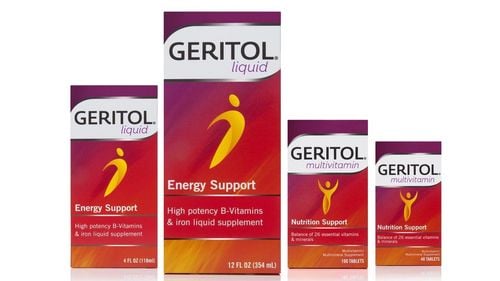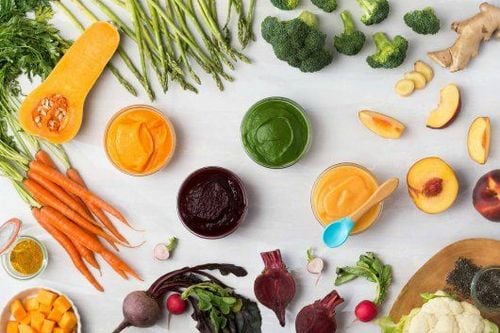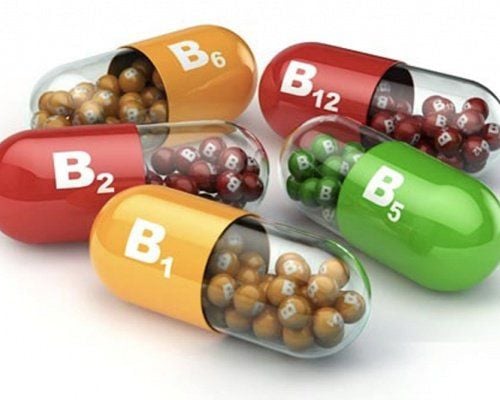This is an automatically translated article.
Malabsorption syndrome in children is not uncommon in children. So what affects the child's ability to absorb food and nutrition and is there a way to increase absorption for the child?
Video content is professionally consulted by Doctor Children's Center, Vinmec Times City International Hospital
1. Factors affecting children's ability to absorb food and nutrition
Poor absorption of children causes a lack of nutrients necessary for the body to develop such as zinc, B vitamins, lysine, etc. Since then, children's resistance is reduced, making children more susceptible to diseases. , affecting the child's height and brain development
1.1 The first factor: Nutrients and vitamins/micronutrients Nutrients (protein, sugar, fat, fiber,...) provide energy for the body. Micronutrients (zinc, iron, calcium, phosphorus, magnesium...) and vitamins (A, B, C, D, E, K,...) participate in metabolic processes in the body. .
Metabolism is a series of activities/reactions that occur inside the body. When the child eats, the food that enters the body is digested and absorbed. Therefore, if there is a lack of micronutrients, vitamins or essential nutrients, the metabolism in the body is affected, including food metabolism, causing malabsorption and malnutrition. in children.
1.2 Factor
2: Intestinal microbiota The microbiome in the digestive tract begins to form from the moment the baby is born. Intestinal microbiota develops gradually during the first 2 years of a child's life, and by 2 years of age, gradually becomes as diverse as adults.
The total amount of bacteria in the digestive tract is estimated at about 100 trillion, equivalent to 1.5kg of microorganisms. In a healthy body state, the intestinal microflora has about 500 different species, including beneficial microorganisms (accounting for 85%) and pathogenic microorganisms (accounting for 15%).
Intestinal microflora directly affects the digestion, absorption of food and nutrition of young children because it helps support digestive function by crushing and fermenting food; synthesizing vitamins of group B, vitamin K, increasing the digestion of protein, fat, and sugar; .. Therefore, when there is a problem with the intestinal microflora (imbalance, disorder, infection, etc.) it will affect the child's ability to absorb food and nutrition.
1.3 Factor 3: Medical conditions in the child If the child has a disease of the pancreas, liver, gallbladder or gastrointestinal tract such as enteritis, peptic ulcer disease, irritable bowel syndrome, or the child has had surgery. Intestinal resection leads to short bowel syndrome, radiation treatment... will directly affect the poor absorption in children.

2. Measures to enhance the absorption of food and nutrition for children
Malnutrition in children is not a dangerous disease, but it is necessary to detect early and take timely corrective measures to avoid affecting the development of children.
2.1 Supplement with adequate nutrients, micronutrients, vitamins A healthy diet to protect the intestinal microflora needs to help strengthen beneficial bacteria and control the growth of harmful bacteria in the digestive tract. Experts recommend:
Should be fully and balanced with protein, fat, starch, fiber, vitamins and minerals Should use fermented foods (eg miso and yogurt) Eat foods that are high in fiber (eg legumes, oats, bananas or onions) Eat whole grains; fruits... Enhance micronutrients to promote body's metabolism and increase food absorption, including: zinc, iron, calcium, phosphorus, magnesium...) and vitamins (A) , B, C, D, E, K,...). In particular, zinc has an important role, being a component of more than 300 enzymes involved in the body's activities, helping to increase absorption, increase protein synthesis, increase appetite, strengthen the immune system, help Children absorb well. 2.2 Protecting the intestinal microflora Minimize the use of antibiotics unless prescribed by a doctor. Besides, parents do not eat spicy, hot foods, eat raw / rare foods to avoid intestinal infections.
2.3 Other solutions Create a habit of personal hygiene and clean body hygiene in children: Children need to be hygienic, wash hands and feet clean before eating and after going to the toilet, and at the same time have good hygiene habits. give birth, brush your teeth every day. With nursing babies, the mother needs to clean her hands, feet and breasts before breastfeeding. Keeping the child's living environment clean and cool
Strengthening the baby's movement to increase the contractions of the intestines, useful in increasing the digestive ability in children and periodic deworming for children over 24 months year old.
When understanding the main causes affecting the absorption of nutrients in children, parents should adjust so that their children have a good diet and activities to help the body develop comprehensively.
If necessary, you can consult a specialist and choose more functional foods and micronutrients to help stimulate children's appetite, good digestion and limit minor illnesses.
Please dial HOTLINE for more information or register for an appointment HERE. Download MyVinmec app to make appointments faster and to manage your bookings easily.













